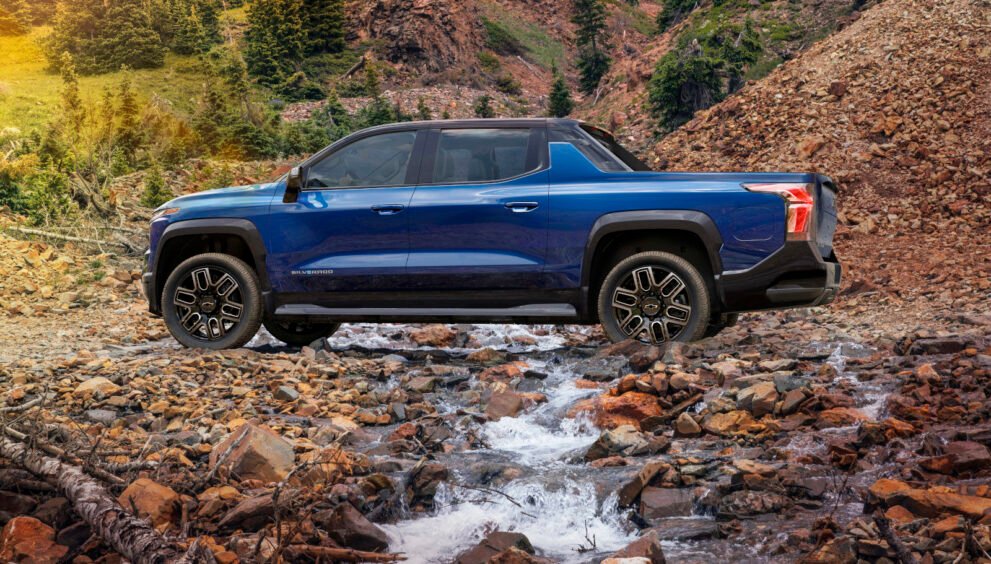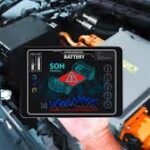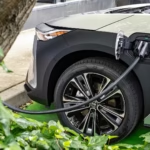Fastest Charging EVs in 2025: Ranked by Real-World Tests Now

Fastest Charging EVs in 2025: Ranked by Real-World Tests
Charging speed has become the ultimate differentiator in the electric vehicle market. While manufacturers love to tout peak charging rates, real-world performance tells a different story. After extensive testing of nearly 50 EVs, a clear hierarchy has emerged among the fastest charging electric vehicles, and the results might surprise you. Korean automakers are dominating the charging speed leaderboard, while some luxury brands struggle to match their impressive 10-80% charge times.
The New Kings of Fast Charging: Korean Dominance

Hyundai Ioniq 6: The Charging Speed Champion
Genesis, Hyundai, and Kia EVs continue to display charging dominance, accounting for the entire top-five list of fastest-charging EVs we’ve tested. Leading this pack is the Hyundai Ioniq 6, which has established itself as the fastest charging EV in real-world conditions.
Hyundai says the Ioniq 6 can replenish its battery from 10 to 80 percent in 18 minutes. This isn’t just marketing speak—independent testing confirms these impressive numbers. The IONIQ 6 features an 800V battery system for rapid charging, which enables it to maintain high charging speeds throughout most of the charging curve.
The Ioniq 6’s streamlined design contributes significantly to its charging efficiency. Its exceptional aerodynamics reduce energy consumption, meaning each minute of charging translates to more real-world miles than competitors with less efficient designs.

Genesis GV60: Luxury Meets Lightning Speed
The Genesis GV60 proves that luxury doesn’t mean sacrificing charging speed. When charging at 350kW with the ultra-speed charging function, the battery can be charged from 10% to 80% in just 18 minutes. This matches the Ioniq 6’s impressive performance while delivering premium amenities and build quality.
Using highway range results as an indicator, the Ioniq 5, EV6, and GV60 need a minuscule 11 minutes to add enough juice for 100 miles of driving when plugged in at a 10-percent state of charge. This real-world metric demonstrates the practical advantages of Korean 800V architectures for road trippers.

Kia EV6: The Accessible Speed Demon
Completing the Korean triumvirate, the Kia EV6 delivers identical charging architecture to its Genesis and Hyundai siblings but at a more accessible price point. The EV6’s 800V system enables it to achieve the same 10-80% charging times as its premium counterparts, making fast charging technology available to a broader market.
The EV6’s consistent charging performance across different state-of-charge levels sets it apart from competitors, which experience significant speed degradation as batteries fill up. This consistent performance is crucial for long-distance travel scenarios.
European Excellence: Porsche Taycan’s Charging Mastery

Porsche Taycan: The Original 800V Pioneer
The Porsche Taycan topped the charts, recovering an impressive 400 km in just 30 minutes of charging—an incredible feat. While not the absolute fastest in 10-80% times, the Taycan excels in practical charging scenarios that matter most to drivers.
The Porsche Taycan – freshly updated with higher power charging – takes top spot in several real-world charging metrics. It’s a key reason why Porsche’s EV can charge faster and accelerate more consistently than any Tesla.
The Taycan’s 800V architecture enables several advantages beyond raw charging speed. The higher voltage allows for thinner cables, reduced heat generation, and more consistent performance across different charging conditions. With 5 to 80% SOC possible in 22.5 min, Porsche Taycan is one of the best on the market.

Audi e-tron GT: Shared Excellence
Sharing the Taycan’s 800V platform, the Audi e-tron GT delivers nearly identical charging performance with distinctive styling and interior appointments. The e-tron GT benefits from Porsche’s engineering expertise while offering Audi’s signature luxury experience.
Luxury Contenders: Mercedes and Lucid

Mercedes-Benz EQS: Refined Charging Performance
The Mercedes-Benz EQS Sedan has roughly the same fast-charging time as its SUV sibling, clocking in at 30 minutes to reach 80%. It has a range of 352 miles, which puts it among the highest ranges available today. While not the absolute fastest, the EQS delivers respectable charging speeds combined with exceptional range.
The EQS’s charging performance prioritizes battery longevity over peak speed, which may appeal to owners focused on long-term ownership costs rather than maximum charging velocity.

Lucid Air: High-Voltage Innovation
With the highest range of any EV ever – 520 miles – the Lucid Air is most likely going to be the electric car of the future. The Air’s impressive range capabilities are matched by competitive charging speeds, though it doesn’t quite match the Korean leaders in 10-80% times.
The Lucid Air’s strength lies in its combination of range and charging speed—when you need to charge less frequently, slightly slower charging becomes less critical.
American Contenders: Closing the Gap

Chevrolet Silverado EV: Truck-Sized Charging
The 754-hp dual-motor all-wheel-drive RST model averaged charging speeds of 198 kW when charging from 10 to 90 percent. Despite its charging speed, the Chevy still took 58 minutes to go from 10 to 90 percent state of charge.
While not matching the Korean leaders, the Silverado EV’s charging performance represents significant progress for American automakers in the fast-charging arena.
Tesla’s Supercharging Reality Check
Tesla’s Supercharger network remains the gold standard for charging infrastructure, but the company’s vehicles no longer lead in charging speed. The Ioniq 5’s charging speed of “only” 126 kW when using a Tesla V3 Supercharger highlights the importance of matching high-capability vehicles with appropriate charging infrastructure.
Tesla’s strength lies in network reliability and availability rather than peak charging speeds. However, as other manufacturers gain access to Supercharger infrastructure, Tesla’s charging advantage may diminish.
The Science Behind 800V Electric Cars
The dominance of Korean and German manufacturers in charging speed rankings isn’t coincidental—it’s the result of their commitment to 800V architectures. Traditional 400V systems face fundamental physics limitations that higher voltage systems overcome.
800V systems enable higher charging power with reduced heat generation, thinner cables, and more efficient power delivery. This translates to faster charging speeds and better performance consistency across different charging conditions.

Real-World Charging Considerations
Peak charging rates only tell part of the story. Real-world charging performance depends on several factors including ambient temperature, battery temperature, state of charge, and charger capability. The fastest charging EVs maintain high speeds across a broader range of conditions.
When plugged into the 400kW charger at 10% SoC, the Emeya added a whopping 193 miles of range in just 10 minutes. This demonstrates how newer EVs are pushing the boundaries of what’s possible with current charging infrastructure.
Charging Infrastructure Compatibility
The fastest charging EVs require compatible infrastructure to achieve their maximum potential. 350kW+ charging stations are becoming more common, but availability varies significantly by region. Planning routes around high-power charging stations becomes crucial for maximizing the benefits of fast-charging vehicles.

The Future of EV Charging Speed
As battery technology continues advancing, charging speeds will likely increase further. Solid-state batteries, improved thermal management, and higher voltage architectures promise even faster charging times in future generations.
The current leaders in charging speed have established a significant advantage, but the gap between the fastest and slowest charging EVs continues to narrow as technology improves across the industry.
Making the Right Choice for Your Needs
When choosing among the fastest charging EVs, consider your specific use case. Daily commuters may prioritize different factors than road trip enthusiasts. The Korean trio of Ioniq 6, EV6, and GV60 currently offers the best combination of charging speed, efficiency, and value.
For luxury buyers, the Porsche Taycan and Audi e-tron GT provide premium experiences with excellent charging performance. Mercedes EQS buyers trade some charging speed for maximum range and comfort.
The fastest charging EVs of 2024 represent a new era in electric mobility, where charging stops become brief interruptions rather than extended breaks. As infrastructure continues expanding and technology advances, these charging speeds will become the baseline for future electric vehicles.
Note: Charging speeds vary based on multiple factors including temperature, battery condition, and charger capability. Always verify current specifications with manufacturers and charging network providers.




















































































































































































































































































































